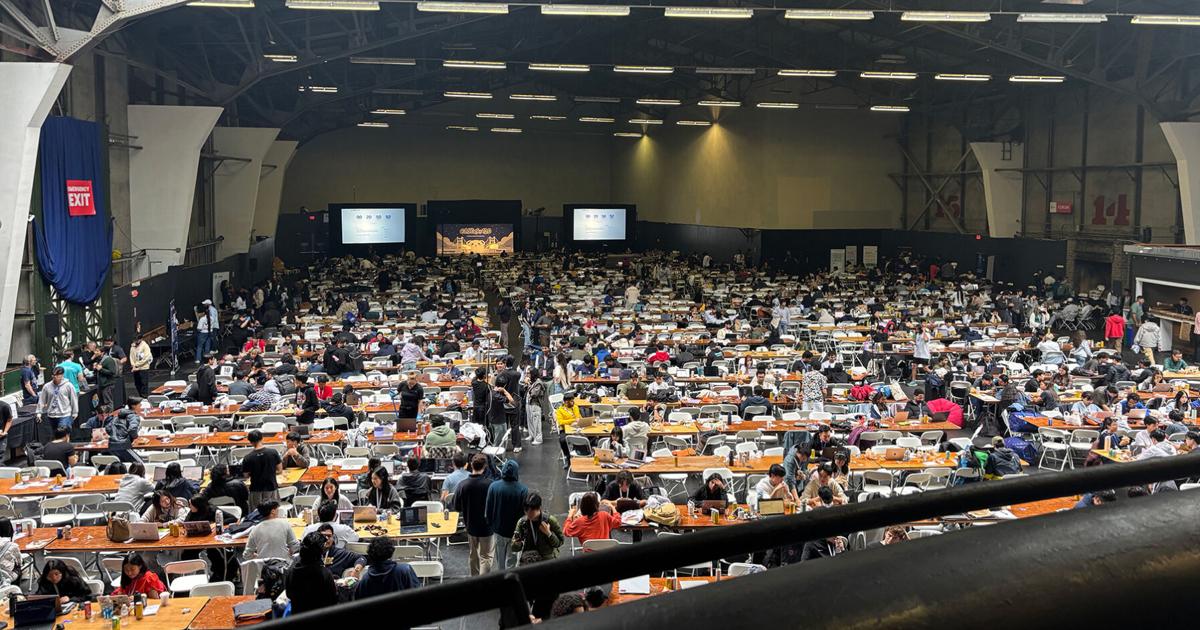From Friday to Sunday, energy drinks, mattresses, computers and tech start-ups littered the floor and tables at the Palace of Fine Arts in San Francisco, where nearly 3,000 “hackers” competed in the 12th annual Cal Hacks, a three-day hackathon.
Hosted by Hackathons @ Berkeley, the event drew undergraduate students from around the world and is the self-proclaimed “world’s largest collegiate hackathon.”
This year marks the largest event Hackathons @ Berkeley has hosted, almost doubling the number of students who participated last year, said executive director Flora Wang. She explained that this year is the first time Cal Hacks took place at the Palace of Fine Arts, an iconic landmark in San Francisco.
“Our one last year was 1,750 people, so we’re looking at about double the size of the event this year,” Wang said. “That part has been really hectic, but overall I think it’s been going pretty smoothly.”
During the three-day conference and 36-hour period of coding, students camp out to finish their projects in hopes of winning one of the coveted cash or tech prizes, as well as the more important reward: bragging rights and a potential job, noted Christopher Blu Lopez, the marketing director of Hackathons @ Berkeley. Wang said 60 sponsors, all from top companies including Anthropic, Annapurna Labs, AppLovin and fetch.ai, funded the event.
The sponsors incentivize students to create software by providing hardware for hackers to adapt and make into a new product, while others use the hackathon to screen for potential future employees. Additionally, the sponsors provide Cal Hacks with funding that allows the event to be completely free, with meals, mattresses, merchandise, hygiene kits and showers provided for the hackers, Wang said.
“We’re doing everything we can to kind of make this place feel more comfortable, given that it’s very bare bones,” Wang said. “There are so many people everywhere, but we are providing everything for free.”
In addition to hosting dozens of Bay Area sponsors for students to network with, Cal Hacks also provides a way for fellow hackers to engage with a community of computer scientists that reaches beyond school affiliation.
While a large percentage of Cal Hacks attendees were Californians, many students flew in from around the country and abroad to engage with the diverse community brought together by Cal Hacks.
“It’s really showing us that the sky really is the limit, and we can continue to push ourselves even more,” Lopez said. “There’s always room to improve because at the end of the day, we want to make sure that this is an overall good experience for hackers, that they’re able to build their projects at ease.”
Cal Hacks culminated Sunday with a final judging round, where teams of sponsors could listen to project pitches and ask questions before making their final selections of winning teams.
Wang noted that approximately $200,000 in prizes were awarded to the teams with the winning projects in each category before the closing ceremony took place.
“We’re hoping that even though we are farther from (UC Berkeley), we still have that kind of … energy here,” Wang said.

